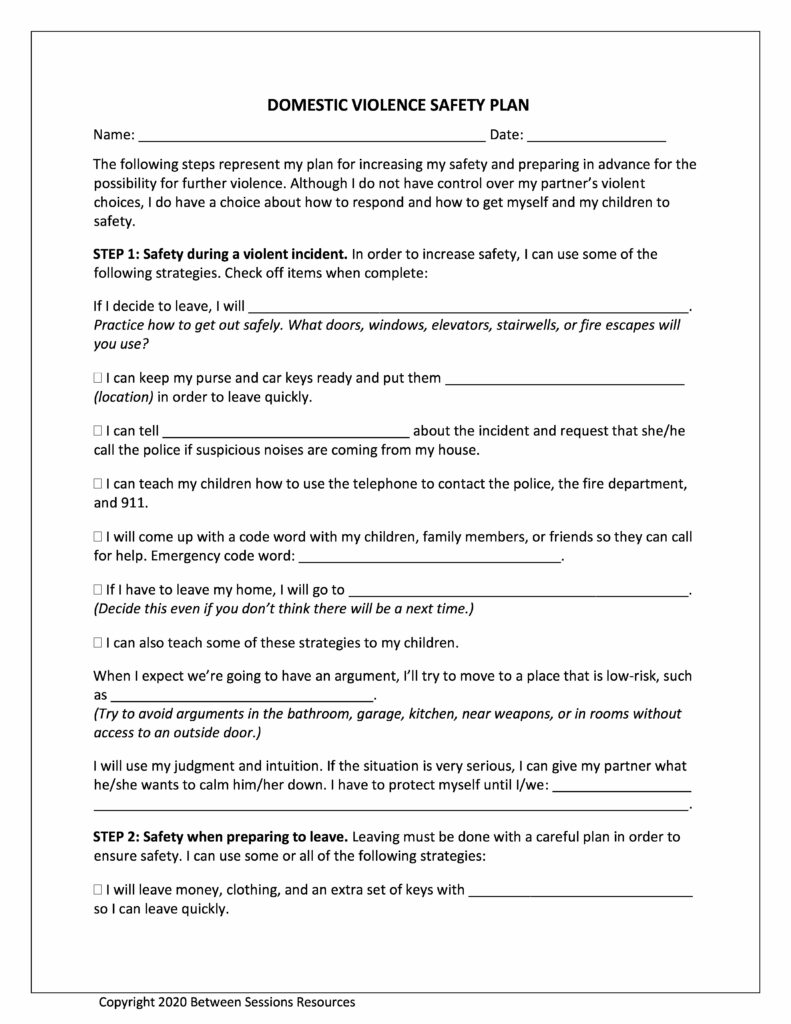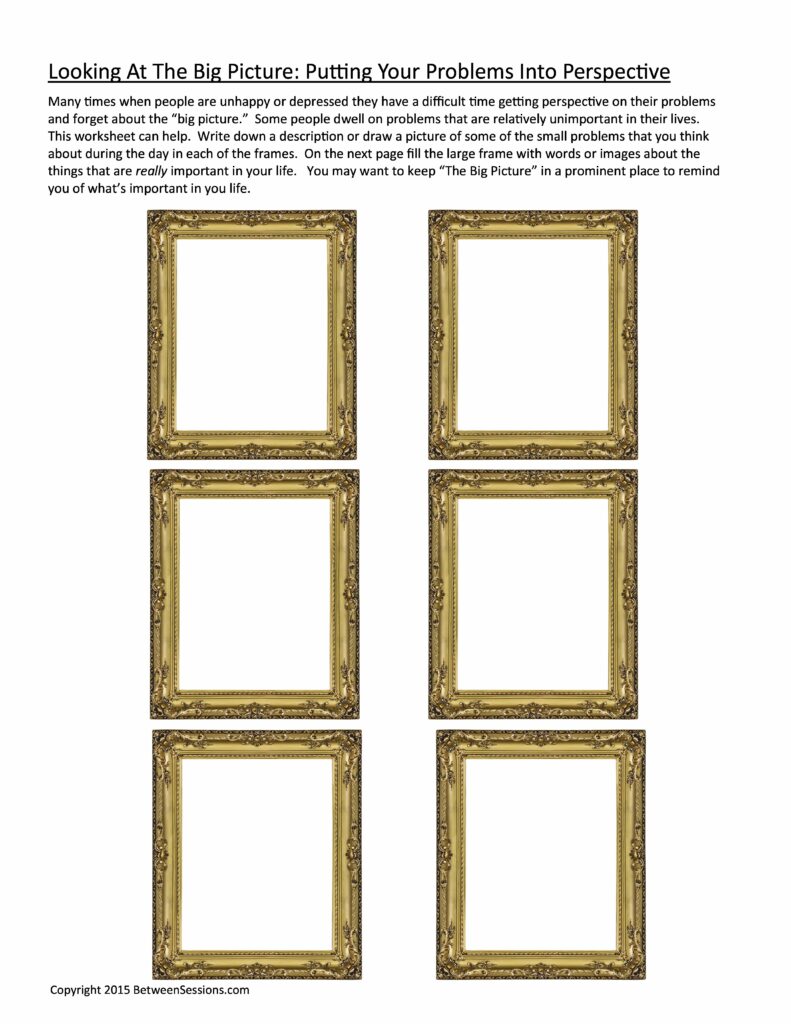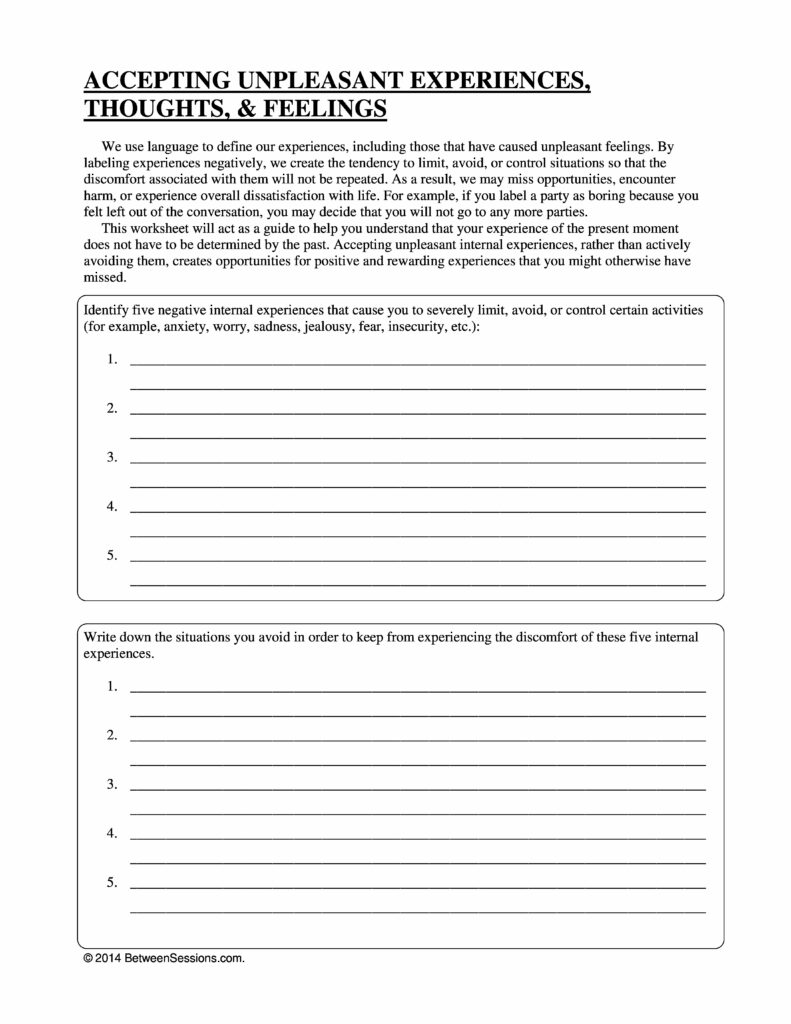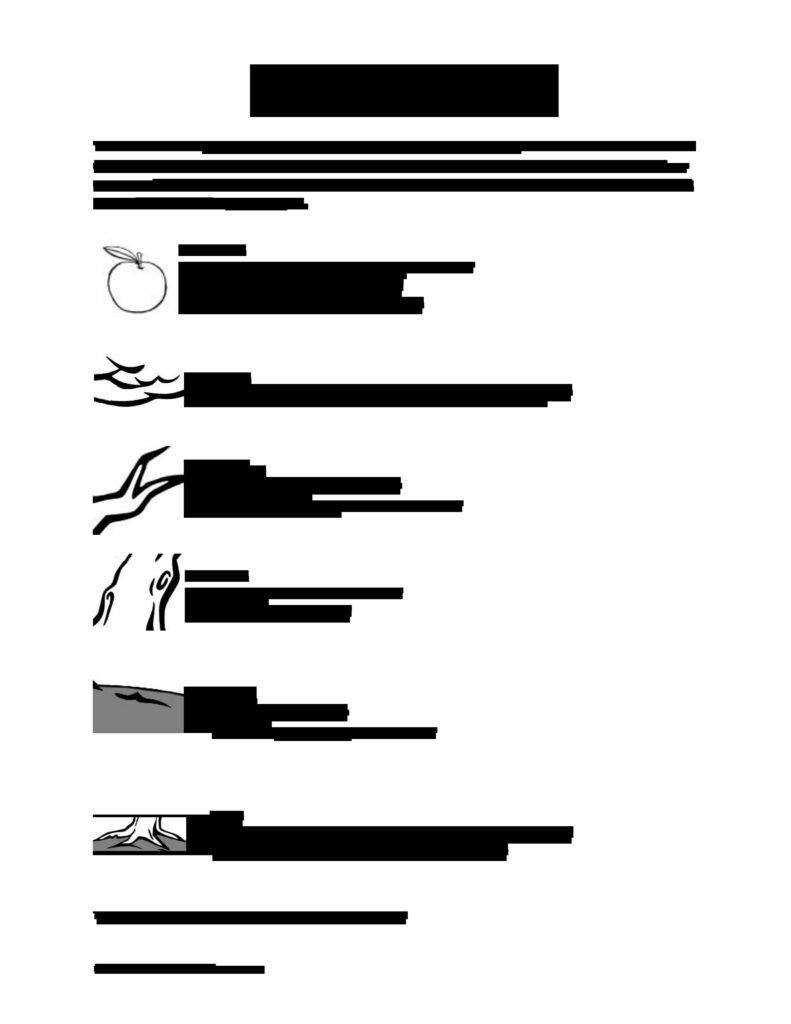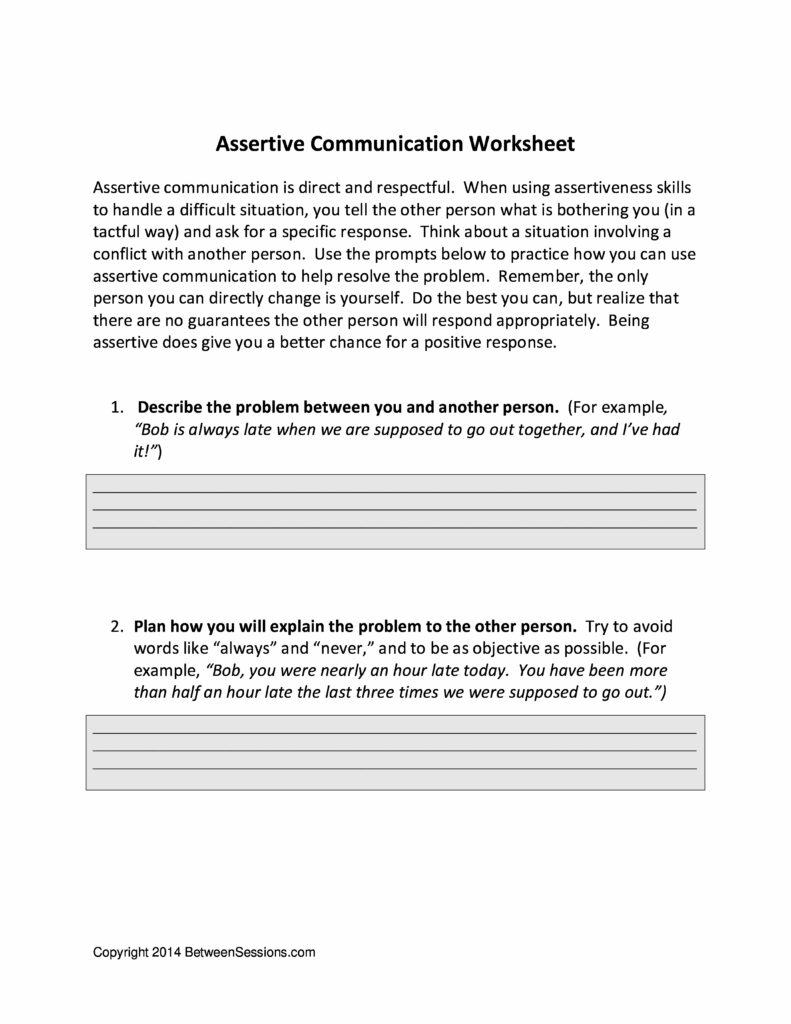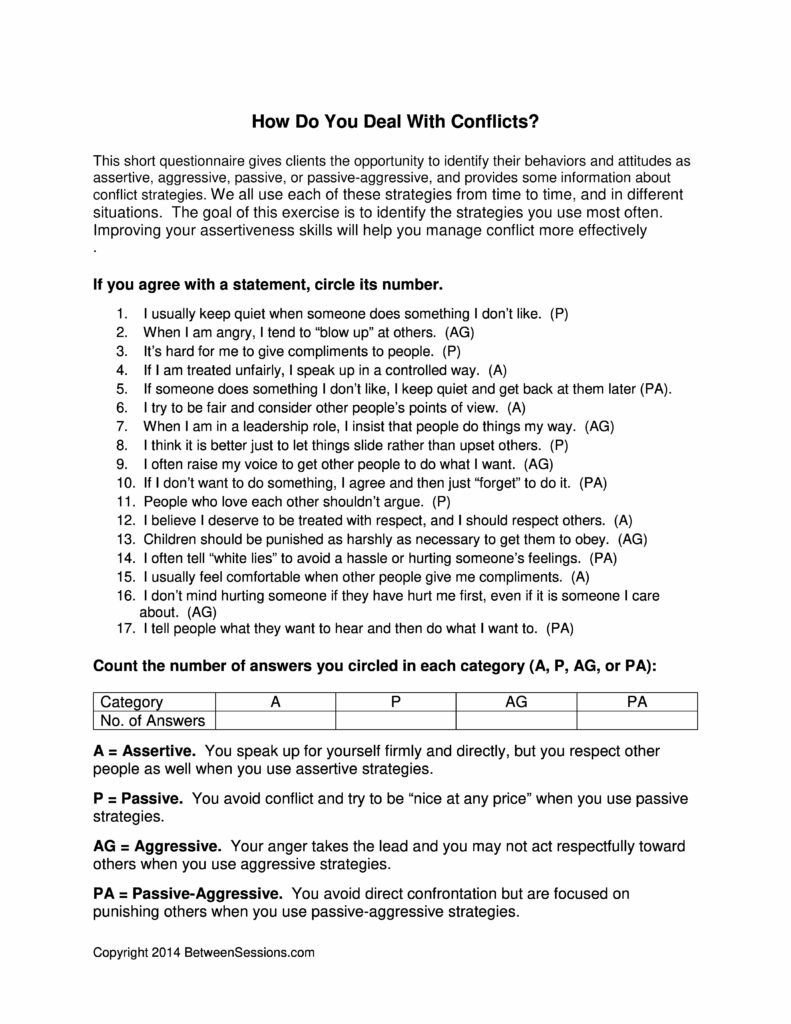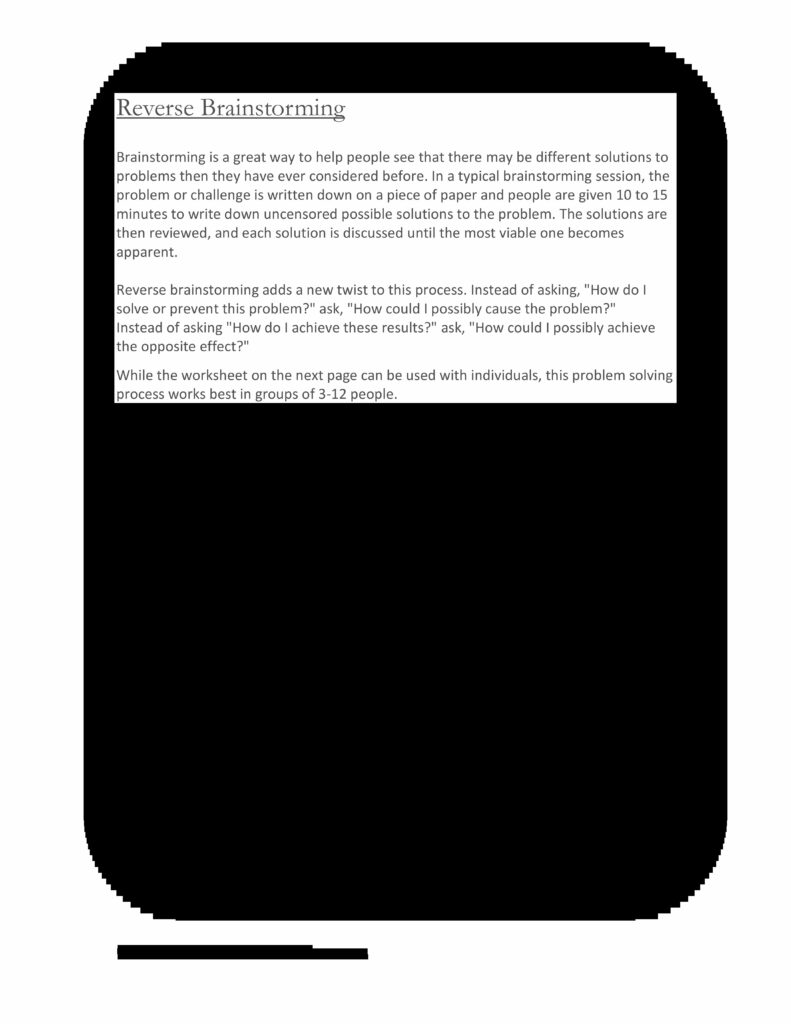This form can be used to help women increase their degree of safety and make appropriate choices for themselves and their children. Sections include what to do after a violent incident, what to think about when leaving an abusive situation, how to be safe in your own home, what to take when leaving, and more. (domestic violence, trauma, abuse, relationships, 1120)
This worksheet is designed to help people put their problems into perspective. Taking an art therapy approach, people draw their small problems in little frames and the important things in their lives in the big frame. This worksheet can be a good opening to introduce a discussion about values. (values, art therapy, problem-solving, 0215)
Rooted in the work of Dialectical Behavior Therapy (DBT), this worksheet is designed to help clients let go of their style of negatively judging others, and to help them understand the negative effects of these thoughts and their associated behavior. (DBT, judgment, 0215)
This worksheet presents strategies to help people recovering from the break-up of a relationship and encourages them to come up with their own coping techniques. (divorce, relationships, coping strategies, 1115)
This worksheet, derived from Acceptance & Commitment Therapy (ACT), is designed to help people accept unpleasant internal experiences, and not use them as an excuse to avoid life-affirming situations.
This exercise is designed to help clients communicate positive aspects about their lives. The technique is derived from Narrative Therapy. (1114)
This dice game can be printed on heavy stock paper and then assembled. It is a fun game designed to enhance family communication. The blank die makes it easy to customize the game for many purposes. Type: PDF (1014)
This worksheet helps clients to identify a conflict, describe it in nonjudgmental terms, explain how the other person’s behavior has affected them, and ask for a specific response.
This short questionnaire gives clients the opportunity to identify their behaviors and attitudes as assertive, aggressive, passive, or passive-aggressive, and provides some information about conflict strategies. (conflict management, communication)
This form can be used to help clients who are “stuck” in a particular situation and can’t seem to find any appropriate solution to a problem or challenge. It can be used with individuals, but any kind of brainstorming is generally most productive in a group situation.

